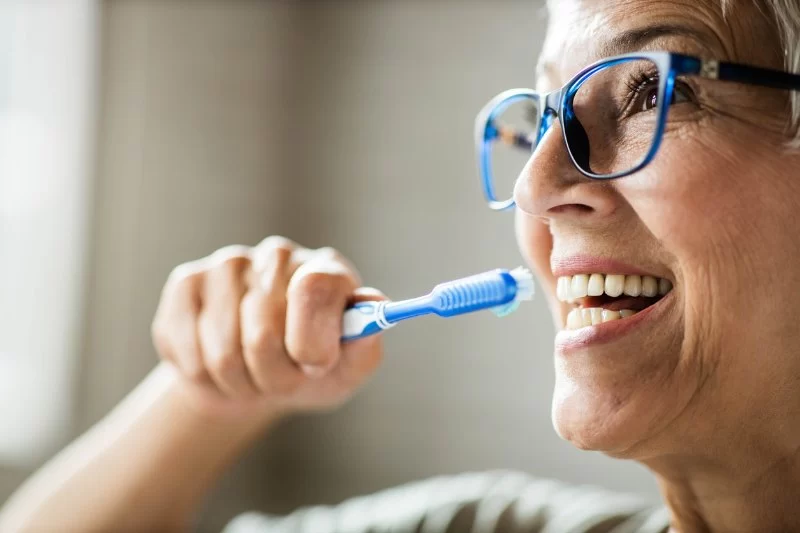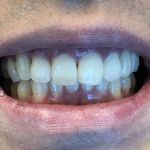
1. Understanding the importance of oral hygiene in the elderly
As people age, oral health becomes more than just a cosmetic concern. For older adults, maintaining oral hygiene directly influences their overall well-being, nutritional intake, and even chronic disease management. Oral hygiene for the elderly plays a role in preventing infections, ensuring comfortable eating, and supporting social confidence. In the United States, where senior populations are rapidly growing, this topic has become essential for families and healthcare providers alike.
1.1 The connection between oral health and overall health
Medical research consistently shows that poor oral health can worsen conditions like heart disease, diabetes, and respiratory infections. For example, untreated gum disease can allow bacteria to enter the bloodstream, increasing inflammation in the body. Elderly individuals with weakened immune systems are especially vulnerable to these complications.
1.1.1 A personal story
Consider the case of a retired teacher who struggled with chronic gum infections. Once her dentist treated the underlying periodontal disease, her blood sugar levels stabilized, and she found renewed energy. Stories like this highlight why paying attention to oral hygiene is not optional but necessary for quality of life in later years.
2. Common dental problems faced by older adults
Elderly individuals encounter a unique set of oral challenges that require focused attention. Some problems are linked to natural aging, while others stem from medical treatments or lifestyle changes.
2.1 Dry mouth complications
Medications for high blood pressure, heart disease, or depression often reduce saliva production. A dry mouth increases the risk of cavities and infections, making daily brushing and hydration vital.
2.1.1 Practical insight
Seniors often find relief by sipping water regularly or using sugar-free lozenges to stimulate saliva flow. Dentists may also recommend fluoride rinses to strengthen teeth.
2.2 Gum disease progression
Gum disease remains one of the leading causes of tooth loss among seniors. Neglecting regular cleanings allows plaque buildup to turn into tartar, damaging gum tissue and bone support.
2.2.1 Professional perspective
Periodontists emphasize that early detection is critical. Scheduling checkups every six months can make the difference between keeping natural teeth and needing dentures.
2.3 Tooth loss and denture concerns
Missing teeth affect more than appearance; they compromise nutrition by limiting what a person can eat. Ill-fitting dentures may cause pain, discourage eating, and lower confidence.
2.3.1 Example case
One elderly man described how he avoided social gatherings due to poorly fitting dentures. After receiving a proper fitting, his confidence and dietary variety both improved dramatically.
3. Preventive care and daily practices for seniors
Preventive strategies are the backbone of maintaining oral hygiene for the elderly. With age-related risks in mind, seniors should adopt routines tailored to their needs.
3.1 Brushing and flossing adjustments
Electric toothbrushes with larger handles and flossing tools designed for dexterity challenges make it easier for seniors with arthritis to maintain their oral hygiene.
3.1.1 Daily reminder
Dentists encourage brushing twice a day for two minutes and flossing at least once, no matter the age. Consistency outweighs intensity.
3.2 Professional dental visits
Routine cleanings and checkups detect early issues before they escalate. Dentists can also offer customized advice for seniors who wear partial dentures, implants, or bridges.
3.2.1 Added benefit
Professional cleanings also reduce staining, helping seniors feel more confident in social interactions.
3.3 Nutritional considerations
A balanced diet rich in calcium and vitamin D strengthens teeth and bones. Limiting sugary snacks helps protect against cavities, especially when combined with thorough brushing.
3.3.1 Everyday practice
Choosing crunchy fruits and vegetables not only provides nutrients but also stimulates saliva production and gently cleans teeth.
4. Psychological and social aspects of senior oral care
Oral hygiene influences mental and emotional health. Seniors who struggle with oral problems often withdraw from conversations, dining experiences, and community events.
4.1 Confidence in communication
Clear speech relies on healthy teeth and gums. Seniors often report feeling embarrassed when dental issues interfere with speaking.
4.1.1 Real-world impact
A senior community member once admitted she avoided church gatherings because of missing teeth. After dental treatment, she regained her social life and confidence.
4.2 The link to dignity
Maintaining oral hygiene allows seniors to preserve dignity and independence. It helps them feel capable and less reliant on others for personal care.
5. How Family Dentistry Online can support elderly oral health
For families wondering why oral hygiene is important with elderly, Family Dentistry Online offers tailored advice, professional service recommendations, and educational resources to support aging loved ones. From scheduling cleanings to exploring denture solutions, their guidance ensures seniors maintain not only oral health but also overall quality of life.
5.1 Personalized solutions
Family Dentistry Online highlights dentists who understand the specific challenges faced by seniors, ensuring compassionate and effective care.
5.1.1 Encouragement
By taking proactive steps today, families can protect elderly relatives from preventable pain, nutritional deficiencies, and social isolation caused by poor oral health.







 Dr. Susan E. Henrickson, DMD, FAGD0.0 (0 review)
Dr. Susan E. Henrickson, DMD, FAGD0.0 (0 review) Manhattan Dental Arts4.0 (394 review)
Manhattan Dental Arts4.0 (394 review) Marshfield Dental Group4.0 (214 review)
Marshfield Dental Group4.0 (214 review) Foothill Smiles5.0 (264 review)
Foothill Smiles5.0 (264 review) Dr. Kenneth J. Kalil0.0 (0 review)
Dr. Kenneth J. Kalil0.0 (0 review) Chesheim Dental Associates4.0 (103 review)
Chesheim Dental Associates4.0 (103 review) The Importance of Oral Health Education During Pregnancy for a Healthy Pregnancy
The Importance of Oral Health Education During Pregnancy for a Healthy Pregnancy Best Tips for Brushing Your Teeth Properly for Healthy Gums: Essential Techniques for Oral Health
Best Tips for Brushing Your Teeth Properly for Healthy Gums: Essential Techniques for Oral Health Why Skipping Dental Checkups Can Lead to Bigger Oral Health Problems
Why Skipping Dental Checkups Can Lead to Bigger Oral Health Problems Advantages of Porcelain Dental Restorations
Advantages of Porcelain Dental Restorations How Can Diabetes Cause Tooth and Gum Problems? Preventing and Managing Oral Health Issues
How Can Diabetes Cause Tooth and Gum Problems? Preventing and Managing Oral Health Issues Healthy Habits for Promoting Good Oral Health and Hygiene: Tips for a Healthy Smile
Healthy Habits for Promoting Good Oral Health and Hygiene: Tips for a Healthy Smile